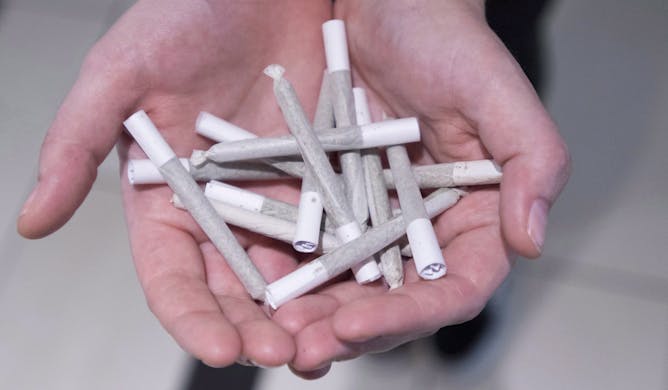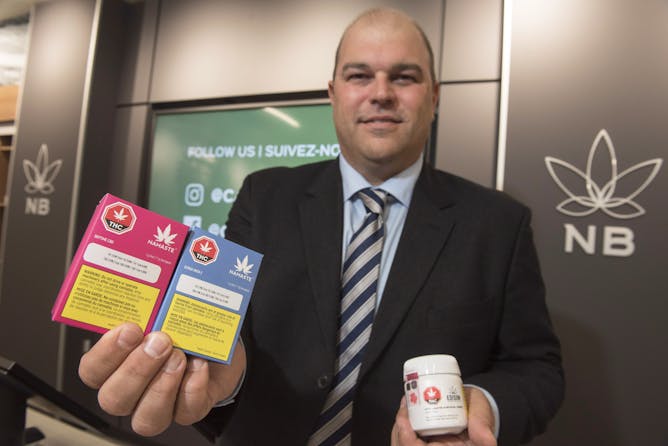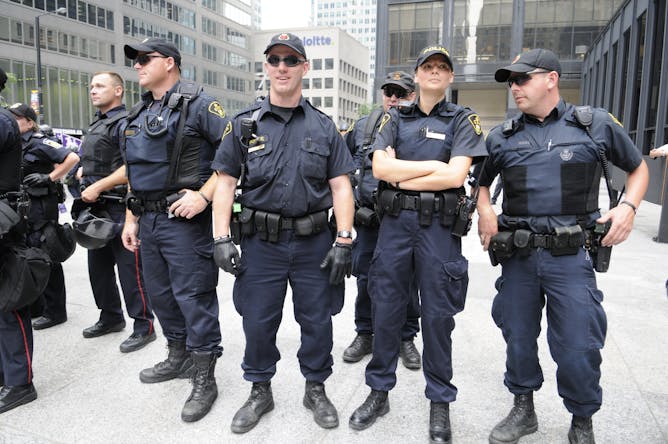|
One of the most significant changes in Canadian public policy happens today. The legalization of cannabis reverses a prohibition against the recreational use of the drug that’s been on the books for a century. Today in The Conversation Canada, we look at a number of issues relating to this new reality.
Stephanie Lake and M-J Milloy of the University of British Columbia tell us about the latest research on how cannabis can be used to fight the opioid crisis. Michael Armstrong of Brock University examines the continued challenge of eliminating black market marijuana. Andrea Furlan of the University of Toronto looks at the detrimental effects of driving while stoned – and she teams with her colleague Nancy Carnide on another story that looks at the impact of people who are high at work.
And finally… under the new law, you must be 18 or 19 (depending on your provincial laws) to legally use marijuana. Geraint Osborne of the University of Alberta offers advice on how to talk to kids about the new reality of legal weed.
Regards,
|

A employee holds pre-rolled joints at Buddha Barn Craft Cannabis in Vancouver, Oct. 2, 2018.
THE CANADIAN PRESS/Jonathan Hayward
Stephanie Lake, University of British Columbia; M-J Milloy, University of British Columbia
Cannabis legalization in Canada is a public health strategy. Let's harness this opportunity to understand how cannabis could fit into a multi-faceted opioid prevention and response strategy.
|

Brian Harriman, Cannabis NB president and CEO, displays some cannabis products at a Cannabis NB retail store in Fredericton, N.B., on Tuesday October 16, 2018.
THE CANADIAN PRESS/Stephen MacGillivray
Michael J. Armstrong, Brock University
In Canada’s newly-legal cannabis market, retailers will face tough competition from the established black market.
|

Cannabis use can impair driving.
(Unsplash)
Andrea Furlan, University of Toronto
More places, including Canada, are legalizing cannabis, but how do we figure out when it's no longer safe to drive?
|

Lack of clear evidence on impairment from cannabis use has led to vastly different workplace policies. Police officers in Ottawa and Vancouver face no restrictions on their off-work use of cannabis as long as they are fit for duty, officers in Calgary have been banned from use and in Toronto they face a 28-day abstinence period.
(Shutterstock)
Andrea Furlan, University of Toronto; Nancy Carnide, University of Toronto
Will offices, construction sites and medical clinics become less safe now that marijuana is legal in Canada? Our experts review the evidence, or lack of it.
|

Cannabis is the most widely available and most used illegal substance in the world, and Canadian youth are among the top users. Parents and their kids need to prepare, as the drug becomes legal in Canada on Oct. 17, 2018.
(Shutterstock)
Geraint Osborne, University of Alberta
Parents can help protect their kids from cannabis abuse by openly discussing the health risks, the pleasures and the responsible ways to use the drug.
|